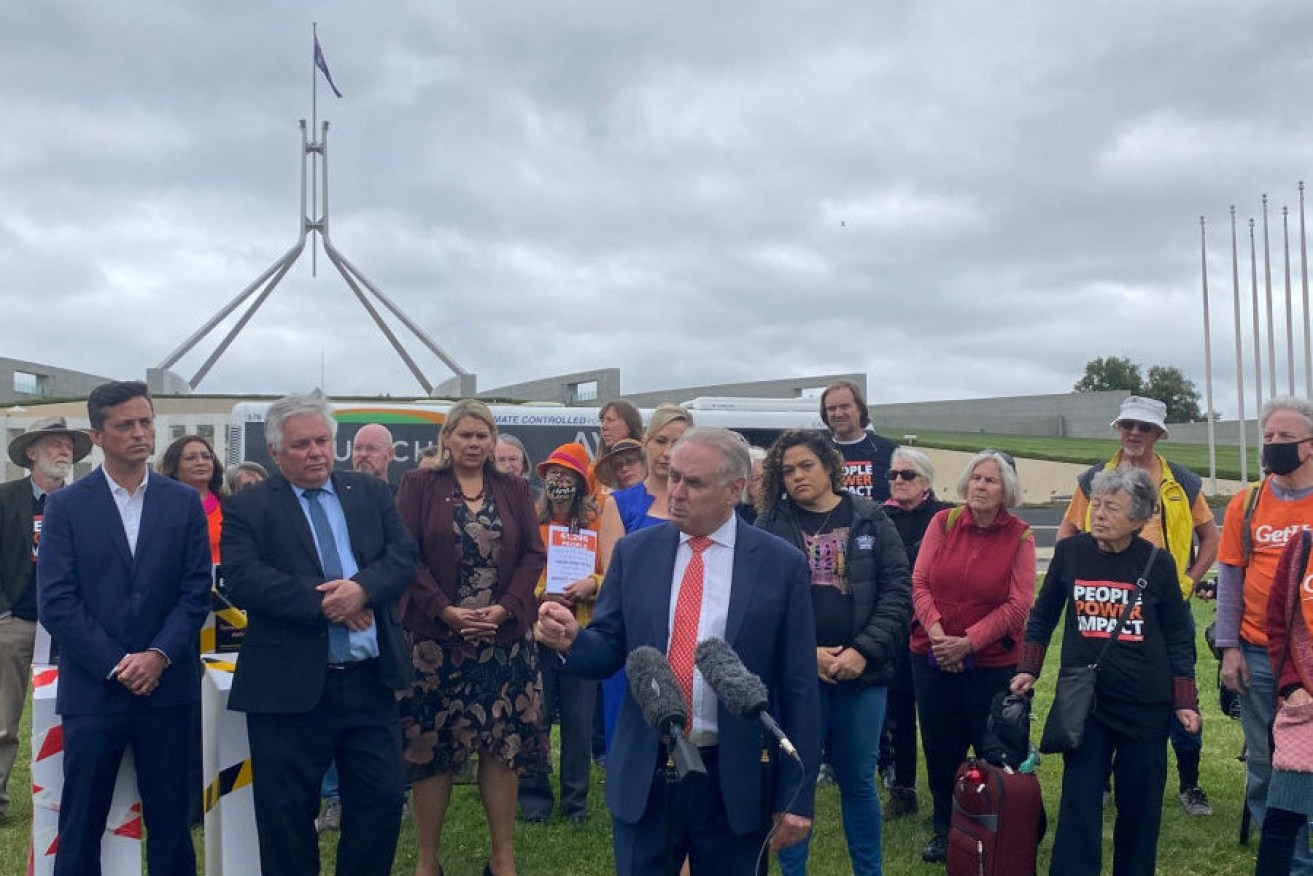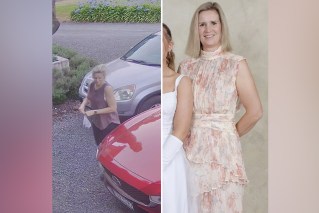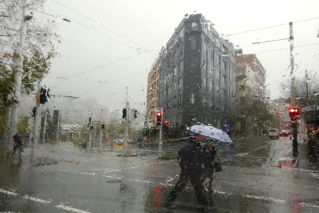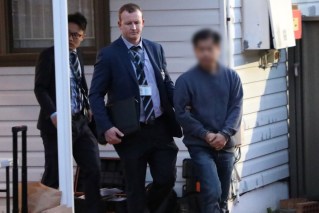‘Try-hard Trump laws’: Labor pledges to scrap voter ID plan if elected


Don Farrell speaks at the demonstration outside Parliament. Photo: The New Daily
Scrapping the Coalition’s controversial voter ID proposal would be the “first thing” a new Labor government would do, the opposition has promised, accusing the Coalition of American-style voter suppression tactics.
Labor frontbencher Don Farrell ridiculed the government’s plan as “try-hard Trump laws”, claiming the contentious idea would disenfranchise vulnerable groups and cause far more problems than it solves.
“When people find out that they’ve got to spend two or three times as long as they’ve ever spent waiting to vote, I think people will get angry,” Senator Farrell said at a protest outside Parliament House on Tuesday.
“That’s not what we want to see in Australia.”

GetUp claimed the proposal would disenfranchise some voters. Photo: The New Daily
Under the Coalition proposal, Australians would have to provide official identification documents before casting a ballot. People unable to immediately provide ID would be able to cast what’s called a “declaration vote”, which allows another voter with the appropriate identification to attest to someone else’s identity.
Special Minister of State Ben Morton has said nobody would be turned away or stopped from voting if they didn’t have ID.
But the plan has been savaged by Labor, the Greens and human rights groups, who argue that similar proposals in the US have led to the disenfranchisement of, and low voter turnout among, vulnerable populations who may not have official government ID.
Opponents have raised concerns about the effects of such a proposal on First Nations people, racial minorities, recent migrants, the homeless or those from low socio-economic backgrounds.
The government has argued it wants to crack down on instances of illegal or multiple voting. The Australian Electoral Commission told a Senate estimates hearing in October it detected just 2100 instances of multiple voting at the 2019 election – about 0.01 per cent of all ballots cast.
Electoral commissioner Tom Rogers called the number “vanishingly small” in a March hearing.
On Tuesday, progressive campaigner group GetUp! held a demonstration on the front lawn of Parliament House. The group held a barbecue, in tribute to the ‘democracy sausage’ phenomenon of Australian elections, and presented a petition with more than 61,000 signatures in opposing the voter ID changes.
Senator Farrell, Labor shadow special minister of state, said his party would oppose the laws. However, if they passed, he said an Anthony Albanese government would reverse the legislation as the “first thing” it would do in office.
Mr Albanese has previously slammed the laws as a “thought bubble is straight out of the Donald Trump playbook”. Senator Farrell also drew parallels to voter suppression in the US.
“I don’t think there’s any doubt the government does see the benefit that Republicans get, particularly in the south of the United States, from suppressing in particular black voters,” he said at the GetUp! event.
“They’ve seen that works in the United States, so they’re trying to introduce it here.”
Referring to the past comments from the AEC, Senator Farrell claimed concerns about voter fraud were “a problem that doesn’t exist” in Australia, but that the laws would block more voters.
He claimed that checking IDs at polling places would lead to lengthy queues “two or three times as long”, which could discourage people from lining up. Senator Farrell said Labor wanted the government to withdraw the proposal, but would seek to push it to a Senate committee inquiry in the meantime, in efforts to delay the legislation.
Greens senator Larissa Waters also slammed the proposal.
“Voter fraud is not a problem. The numbers are infinitesimal. Often it’s just a sheer mistake or a misunderstanding,” she said.
“[The government] is trying to fix a problem that doesn’t exist because it suits them politically.”
Greens senator Lidia Thorpe, the party’s First Nations spokesperson, said the plan would disproportionately affect Indigenous Australians. She was concerned that the plan could see some people jailed, if they couldn’t or didn’t pay their fines.
“We’re talking about fining women fleeing domestic violence situations. We’re talking about homeless people. What is this really about?” Senator Thorpe said.
“We know the implications are going to be very harmful, if not fatal, particularly for black people in this country.”








